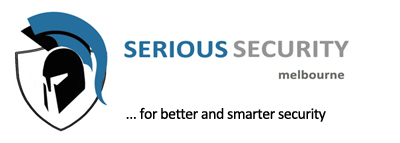The hospitality industry, encompassing hotels, resorts, and accommodations, is built on providing guests with comfort, relaxation, and memorable experiences. However, ensuring the safety and security of guests, staff, and property is equally paramount. Electronic security systems have become an essential component in maintaining a secure and enjoyable environment within the hospitality sector.
CCTV Surveillance: Watching Over Guest Safety
CCTV (Closed-Circuit Television) surveillance is a fundamental aspect of electronic security in the hospitality industry. Surveillance cameras are strategically placed throughout the property, covering lobbies, entrances, corridors, parking areas, and other key locations.
CCTV cameras serve a dual purpose, acting as a deterrent to potential security threats and providing real-time monitoring. This surveillance allows hotel management to ensure guest safety, detect disturbances, and gather valuable footage for incident investigation.
Real-Life Example: Hotel Lobby Surveillance
Consider a bustling hotel lobby. CCTV cameras are discreetly positioned to monitor guest arrivals, lobby activities, and entrances. These cameras not only deter unauthorized access but also capture essential footage in case of disturbances, ensuring a swift response to maintain guest safety.
Access Control Systems: Restricting Access to Secure Areas
Access control systems play a vital role in regulating entry to secure areas within hospitality establishments, such as back-of-house, storage rooms, and administrative spaces. These systems often employ keycard readers, PIN codes, or biometric authentication to ensure that only authorized personnel can enter these areas.
Access control enhances security by preventing unauthorized access to valuable assets, confidential information, and sensitive areas. It also provides an audit trail of who enters and exits secure zones, aiding in accountability and compliance.
Real-Life Example: Employee-Only Areas
In a large resort, access control systems are used to restrict entry to employee-only areas, including administrative offices and inventory storage. Only staff members with the necessary credentials can access these secure zones, ensuring the integrity of both operations and guest safety.
Alarm Systems: Immediate Response to Security Incidents
Alarm systems are critical components of electronic security in the hospitality sector. These systems are designed to provide immediate alerts in response to security breaches, unauthorized access, fire emergencies, or other critical incidents. They can be integrated with motion sensors, door contacts, and environmental sensors to trigger alarms.
The swift response enabled by alarm systems allows hotel staff, security personnel, and emergency responders to address security incidents promptly, mitigating potential threats and protecting guests and property.
Real-Life Example: Fire Alarm Activation
At a luxury hotel, alarm systems are integrated with fire detection sensors and smoke detectors. If a fire emergency is detected, the alarm is activated, alerting staff and guests to evacuate the premises safely. The rapid response facilitated by alarm systems is crucial in preventing injuries and protecting property.
Digital Security: Protecting Guest Data
In an age of digital transactions and reservations, data security is paramount in the hospitality sector. Protecting guest data, including payment information and personal details, is essential. Electronic security measures encompass firewalls, intrusion detection systems, and encryption protocols to safeguard digital assets and data.
Digital security measures help hotel management maintain the confidentiality, integrity, and availability of guest data, protecting against data breaches, cyberattacks, and other online threats.
Real-Life Example: Secure Online Booking
A boutique hotel implements advanced cybersecurity measures to protect guest information during online reservations. These measures include secure payment gateways, encryption of personal data, and regular security updates. The result is a secure and trustworthy online booking experience.
In conclusion, electronic security systems are essential for the hospitality sector, ensuring guest safety, protecting property, and maintaining the integrity of guest data. Whether it’s deterring unauthorized access, regulating entry to secure areas, facilitating rapid responses to security incidents, or safeguarding digital transactions, these systems play a pivotal role in creating a secure and enjoyable environment within the hospitality industry.
